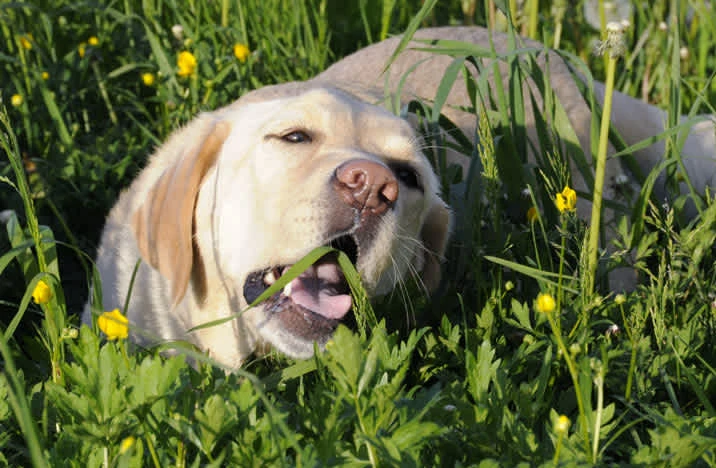Why Do Dogs Eat Grass? Unraveling the Greens

If you've ever caught your furry friend munching on grass, you may have wondered about the reasons behind this peculiar behavior. Dogs eating grass is a common sight that often leaves pet owners curious. In this blog post, we will delve into the fascinating world of dogs' grass-eating habits, exploring the potential motivations, health considerations, and instinctual factors that contribute to this behavior. Let's unravel the mystery and gain a deeper understanding of why dogs occasionally indulge in greens.
Why Do Dogs Eat Grass?
- Instinctual Behavior:
- Residual ancestral instinct to consume plant matter.
- Mimicking their wild counterparts' foraging behaviors.
- Seeking nutritional or dietary variety.
- Digestive Aid:
- Grass acting as a natural emetic, inducing vomiting to alleviate discomfort.
- Assisting in the elimination of indigestible materials or hairballs.
- Nutritional Considerations:
- Grass containing fiber and phytonutrients that may fulfill dietary needs.
- Compensating for potential nutrient deficiencies in the diet.
- Boredom or Behavioral Factors:
- Dogs engaging in grass-eating as a result of boredom or lack of mental stimulation.
- A habitual behavior that provides sensory stimulation.
Is Grass Consumption Normal?
- Occasional and Moderate Grass Eating:
- Many dogs engage in grass-eating sporadically without adverse effects.
- As long as it doesn't lead to digestive upset or other health issues, it's generally considered normal.
- Concerns and Signs of Distress:
- Excessive grass consumption accompanied by vomiting or other signs of discomfort warrants attention.
- If grass eating becomes obsessive or interferes with regular eating habits, consult a veterinarian.
Ensuring Your Dog's Well-being:
- A Balanced and Nutritious Diet:
- Providing a high-quality dog food that meets their nutritional needs.
- Consultation with a veterinarian for guidance on dietary requirements.
- Environmental Enrichment:
- Ensuring mental and physical stimulation through regular exercise and play.
- Providing interactive toys or puzzles to alleviate boredom.
- Regular Veterinary Check-ups:
- Maintaining a schedule of wellness exams to monitor your dog's health.
- Seeking professional advice if grass-eating becomes excessive or problematic.
While the exact reasons behind dogs' grass-eating behavior may vary, it is generally considered a normal and instinctual part of their nature. However, monitoring your dog's grass consumption and overall well-being is essential. If you have concerns or observe unusual patterns, consult with your veterinarian to rule out any underlying health issues or dietary deficiencies. Remember to provide a balanced diet, environmental enrichment, and regular veterinary care to ensure your furry friend's optimal health and happiness.